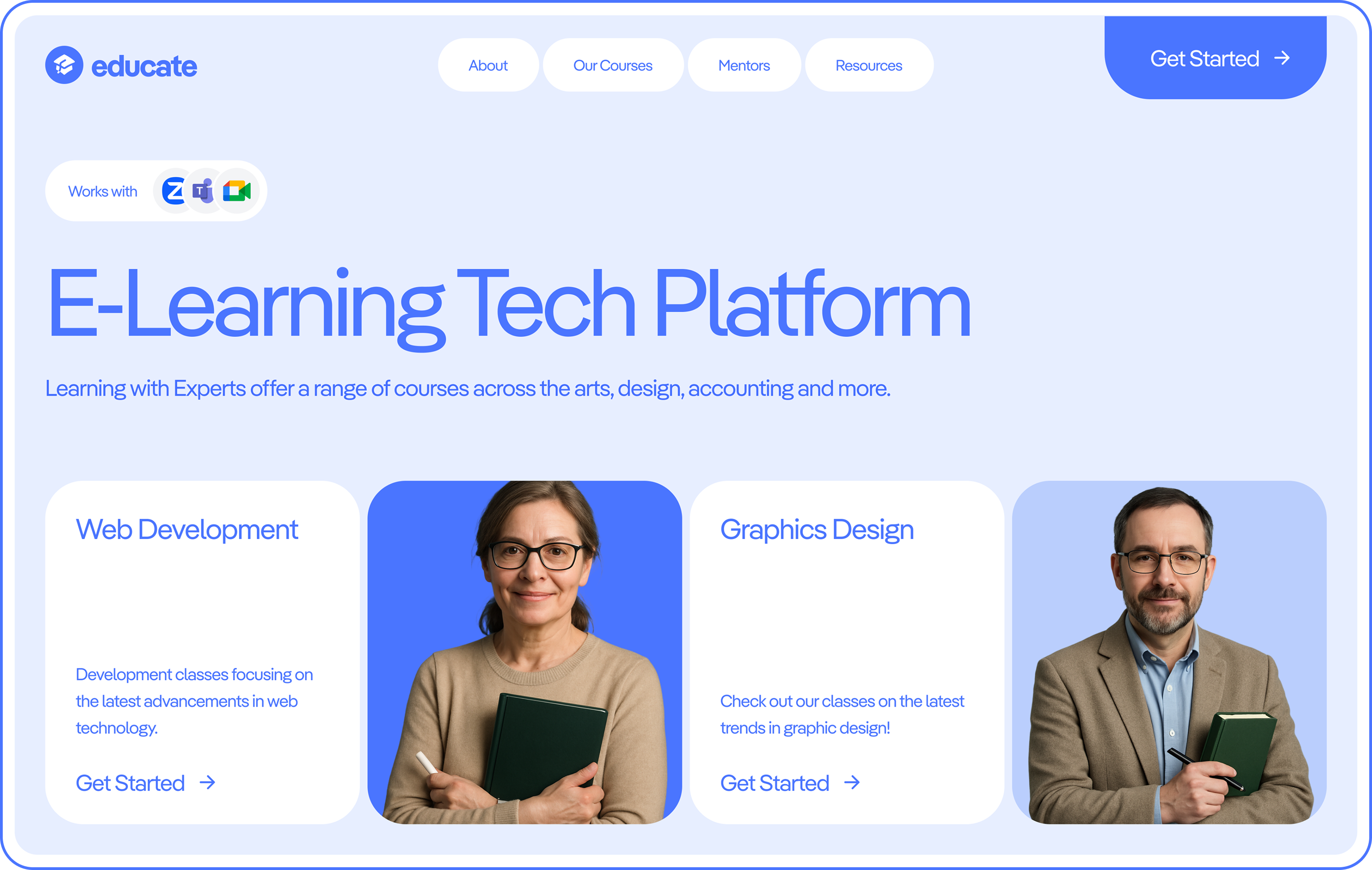AI Content Personalization for an E-Learning Tech Platform
AI development
Education
2 months
Web
About the project
Our client is a mid-sized EdTech company that offers a digital learning platform for middle and high school students. They had an established LMS with a growing user base but needed to boost student engagement. They wanted to integrate AI-driven content personalization without breaking the current architecture/core infrastructure. They also wanted us to update their UX/UI design for a better user experience.
The client had
A working learning management system
The need for better student engagement and retention
We were responsible for
Implementing AI-based content recommendations
Updating the platform’s UX/UI design
Image
Project team
A dynamic IT team focused on delivering innovative solutions.
Tech Stack
Technologies and tools we used to improve the solution.
OpenAI fine-tuning API
LangChain
Pinecone
Python
FastAPI + Redis
Sentry + Prometheus
Key features we worked on
Key steps we took
Here is how we created the web tool
Discovery phase
Defining personalization objectives and success metrics
Auditing current content structure and evaluating available data sources
Selecting the most suitable LLM based on project requirements and constraints
LLM integration
Fine-tuning the LLM with the help of student behavior data and course metadata
Building prompt templates to generate personalized learning suggestions
Implementing retrieval-augmented generation (RAG) for content-aware responses
Personalized UX implementation
Updating the main page and student dashboards
Including “smart tips,” difficulty adjustments, and optional quiz variants
Enabling teachers to preview and adjust AI-generated content
Backend development
Developing middleware to manage LLM interactions and data flow
Building scalable APIs to deliver personalized content to the LMS in real time
Ensuring backend flexibility to support future AI updates
Quality assurance
Conducting iterative testing with small student and teacher groups
Collecting structured feedback on content, performance, and UX
Refining prompts, interface elements, and model behavior
Deployment and monitoring
Launching in phases across progressively larger student groups
Setting up continuous monitoring for LLM output quality and system performance
Preparing support workflows for edge cases
Project challenges and solutions
How our team dealt with a range of development challenges.
Model hallucinations and irrelevant suggestions
Problem: In some cases, the LLM created content that was factually incorrect and off-topic.
Solution: We used retrieval-augmented generation (RAG) to ground responses in verified curriculum content and included confidence scoring and fallback responses (“Ask your teacher” prompts for low-confidence outputs).
Lack of trust from educators
Problem: Some teachers hesitated to adopt AI-powered features since they felt “out of control” and “didn’t understand how it works.”
Solution: Our team provided transparent override tools (for example, teachers can accept/edit/replace AI recommendations). We also included teachers in testing and feedback loops to gain their trust.
Result
After 6 weeks of monitoring the released LLM-based personalization system, the platform got:
25% increase in student engagement
17% improvement in quiz scores for students receiving adaptive content
Teachers reported less time spent manually assigning remedial content


